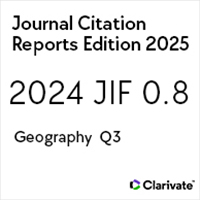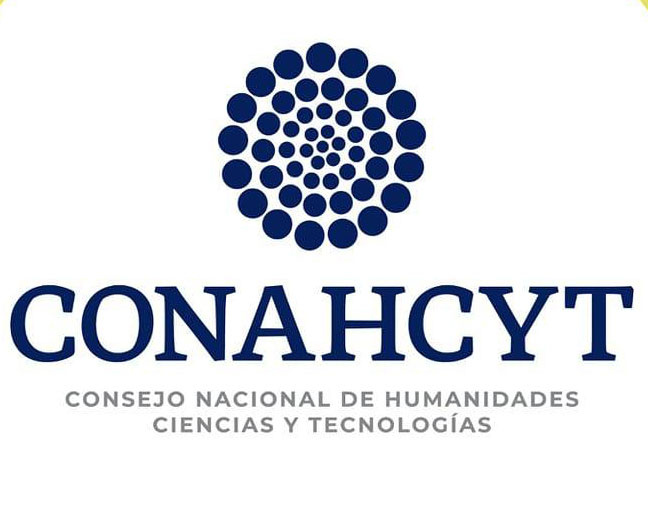COVID-19, legal changes and challenges: Moroccan domestic workers at the Spanish-Moroccan border
COVID-19, cambios normativos y desafíos: trabajadoras del hogar marroquíes en la frontera española-marroquí
https://doi.org/10.21670/ref.2514172
Keywords:
domestic workers, care, border closure, cross-border work, working womenAbstract
This article analyzes the transformations of the normative framework governing the situation of Moroccan women employed in the care sector in Ceuta and Melilla, the two Spanish autonomous cities constituting the only European land borders on the African continent. It focuses on the COVID-19 pandemic and its aftermath, examining how the border closure on March 14, 2020, disrupted the circular mobility that had sustained cross-border care work, exacerbating existing precarity and altering the legal and institutional environment. Drawing on a legal analysis and qualitative interviews, the article highlights the complexity of the challenges faced by cross-border care workers. It explores their working and living conditions that are shaped by intersecting inequalities and shifting regulations. Ultimately, the study situates these experiences within broader debates on the intersection of care work, border controls, and migration, revealing how normative changes affect mobility and livelihoods at Europe’s southern frontier.Resumen
Este artículo analiza las transformaciones del marco normativo que regula la situación de mujeres marroquíes empleadas en el sector del cuidado en Ceuta y Melilla, dos ciudades autónomas españolas que constituyen las únicas fronteras terrestres europeas en el continente africano. Se examina el impacto del COVID-19 y del cierre fronterizo del 14 de marzo de 2020, que interrumpió la movilidad circular que sostenía este tipo de trabajo, exacerbando la precariedad existente y transformando el entorno legal. A partir de un análisis normativo y entrevistas cualitativas, el artículo visibiliza los retos específicos que enfrentan estas trabajadoras y explora sus condiciones laborales y de vida, marcadas por desigualdades interseccionales y normativas cambiantes. Finalmente, sitúa estas experiencias dentro de debates más amplios sobre trabajo de cuidados, control fronterizo y migración, mostrando cómo los cambios normativos afectan la movilidad y las condiciones de vida en la frontera sur europea.References
Acosta Sánchez, M. A. (2022). Ceuta y Melilla en el espacio Schengen: situación actual y opciones de futuro. Peace & Security-Paix et Sécurité Internationales, (10), 1-18. http://dx.doi.org/10.25267/Paix_secur_int.2022.i10.1801 DOI: https://doi.org/10.25267/Paix_secur_int.2022.i10.1801
Andreo Tudela, J. C. (Dir.), Martínez García, J., Moráguez Barco, P., Melgar Ortega, M. T. & Delgado Parrilla, A. (2023). El sector del empleo del hogar en el contexto transfronterizo ceutí. Análisis sobre procesos y relaciones laborales. Ceuta. Instituto de Estudios Ceutíes. https://www.ieceuties.org/_files/ugd/3615f9_d345ef4ceda741f9ad6476aa792e0a68.pdf
Arango, J., Díaz Gorfinkiel, M. & Moualhi, D. (2013). Promover la integración de las trabajadoras y los trabajadores domésticos migrantes en España (Estudios sobre migraciones internacionales núm. 114). Oficina Internacional del Trabajo. https://www.ilo.org/es/publications/promover-la-integracion-de-las-trabajadoras-y-trabajadores-domesticos-0
Arnet Rodríguez, A. (2022). La situación de las trabajadoras transfronterizas durante más de dos años de cierre fronterizo en Ceuta. E-Revista Internacional de la Protección Social, 7(2), 86-107. http://dx.doi.org/10.12795/e-RIPS.2022.i02.05 DOI: https://doi.org/10.12795/e-RIPS.2022.i02.05
Asociación Pro Derechos Humanos de Andalucía (APDHA). (2018, November). Las trabajadoras de hogar en Ceuta. La frontera como clave de la precarización de las ocupaciones transfronterizas feminizadas. https://www.apdha.org/cadiz/wp-content/uploads/Informe-trabajadoras-Hogar-Ceuta-2018.compressed.pdf
Boza, D. (Coord.), Castilla, K. & Torres, F. (2023, October). Informe sobre el marco normativo del trabajo de hogar en España: Especial referencia a la situación de las trabajadoras migrantes. IDP Observatori de Dret Públic. https://www.ub.edu/gesdi/wp-content/uploads/2025/09/Informe-IMU.pdf
Calderón Vázquez, F. J. (2014, January-June). Boundaries in time and space: Spanish “minor sovereign territories”. Frontera Norte, 26(51), 113-136. https://fronteranorte.colef.mx/index.php/fronteranorte/article/view/558
Casaglia, A. (2021). Borders and mobility injustice in the context of the Covid-19 pandemic. Journal of Borderlands Studies, 36(4), 695-703. https://doi.org/10.1080/08865655.2021.1918571 DOI: https://doi.org/10.1080/08865655.2021.1918571
Crenshaw, K. (1991). Mapping the margins: intersectionality, identity politics, and violence against women of color. Stanford Law Review, 43(6), 1241-1299. https://doi.org/10.2307/1229039 DOI: https://doi.org/10.2307/1229039
Departamento de Migraciones. (2019, septiembre). Trabajo doméstico y de cuidados para empleadores particulares. Vicesecretaría General de Unión General de Trabajadores / Fondo Social Europeo / Ministerio de Trabajo, Migraciones y Seguridad Social. https://www.ugt.es/sites/default/files/informe-trabajo-domestico-y-de-cuidados-para-empleadores-particulares-ugt_0.pdf
Díaz Gorfinkiel, M. (2016). La reconfiguración del empleo doméstico en España: impacto de los cambios legislativos en el funcionamiento del sector. Revista Española de Investigaciones Sociológicas, (155), 97-112. https://doi.org/10.5477/cis/reis.155.97 DOI: https://doi.org/10.5477/cis/reis.155.97
Ferrer-Gallardo, X. & Gabrielli, L. (2018). Estados de excepción en la excepción del Estado. Ceuta y Melilla. Icaria.
Ferrer-Gallardo, X. & Gabrielli, L. (2024). The fenced off cities of Ceuta and Melilla: Mediterranean nodes of migrant (im)mobility. In R. Zapata-Barrero & I. Awad (Eds.). Migrations in the Mediterranean (pp. 289-308, imiscoe Research Series). Springer. https://library.oapen.org/handle/20.500.12657/85074 DOI: https://doi.org/10.1007/978-3-031-42264-5_17
Ferrer Gallardo, X. & Gabrielli, L. (2025). Tres décadas de vallas en Ceuta y Melilla: crisificación, externalización y recrudecimiento del control migratorio en las fronteras exteriores de la UE. Documents d’Anàlisi Geogràfica, 71(1), 65-92. https://doi.org/10.5565/rev/dag.892 DOI: https://doi.org/10.5565/rev/dag.892
French, H. (2000). Vanishing borders. Protecting the planet in the age of globalization. Norton.
Fuentes Lara, M. C. (2017). Las mujeres porteadoras en la frontera hispano-marroquí: el caso de Ceuta [Doctoral thesis, Universidad de Granada]. Digibug. http://hdl.handle.net/10481/48864
Ghosh, S., Seth, P. & Tiwary, H. (2020). How does Covid-19 aggravate the multidimensional vulnerability of slums in India? A commentary. Social Sciences & Humanities Open, 2(1), Article 100068. https://doi.org/10.1016/j.ssaho.2020.100068 DOI: https://doi.org/10.1016/j.ssaho.2020.100068
Granda, L. & Nebot i Nieto, O. (2024). Trabajadores transfronterizos en Melilla: perfiles y evolución en una década de cambios. Migraciones, (61), 1-24. https://doi.org/10.14422/mig.2024.011 DOI: https://doi.org/10.14422/mig.2024.011
Granda, L. & Soriano Miras, R. M. (2023a). “Si no tengo esto, no tengo nada”: mujeres porteadoras durante el cierre fronterizo entre España y Marruecos. Estudios Fronterizos, 24, Article e115. https://doi.org/10.21670/ref.2304115 DOI: https://doi.org/10.21670/ref.2304115
Granda, L. & Soriano-Miras, R. M. (2023b). Violencia y resistencias: trabajadoras del hogar marroquíes tras el cierre de la Frontera Sur. Revista CIDOB D'afers Internacionals, (133), 91-112. https://doi.org/10.24241/rcai.2023.133.1.91 DOI: https://doi.org/10.24241/rcai.2023.133.1.91
Gutiérrez Torres, I. (2024). Trapped in Ceuta: reflexive tactics and methods in participatory filmmaking among cross-border women. Migration Studies, 12(3), 1-23. https://doi.org/10.1093/migration/mnad031 DOI: https://doi.org/10.1093/migration/mnad031
Instituto Nacional de Estadística. (2024). Melilla: población por municipios y sexo. https://www.ine.es/jaxiT3/Datos.htm#_tabs-tabla
Leiva Gómez, S. & Ross Orellana, C. (2016). Migración circular y trabajo de cuidado: fragmentación de trayectorias laborales de migrantes bolivianas en Tarapacá. Psicoperspectivas, 15(3), 56-66. http://dx.doi.org/10.5027/psicoperspectivas-Vol15-Issue3-fulltext-766 DOI: https://doi.org/10.5027/psicoperspectivas-Vol15-Issue3-fulltext-766
Lessenich, S. (2016). Neben uns die sintflut. Die externalisierungsgesellschaft und ihr preis. Hanser Berlín.
López Estrada, S. (2020). Cuidado a través de la frontera: trayectorias transfronterizas de cuidados en la región Tijuana-San Diego. Estudios Fronterizos, 21, Article e044. https://doi.org/10.21670/ref.2002044 DOI: https://doi.org/10.21670/ref.2002044
López Sala, A. M. (2012). Donde el Sur confluye con el Norte: movimientos migratorios, dinámica económica y seguridad en las relaciones bilaterales entre España y Marruecos. Documentos CIDOB Migraciones, (24), 1-12. https://www.cidob.org/publicaciones/donde-sur-confluye-norte-movimientos-migratorios-dinamica-economica-seguridad
Marcos Barba, L. (2021). Esenciales y sin derechos. O cómo implementar el convenio 189 de la oit para las trabajadoras del hogar. OXFAM intermón. https://www.oxfamintermon.org/es/publicacion/esenciales-sin-derechos-empleadas-hogar#
Mau, S. (2022). Sortiermaschinen: die neuerfindung der grenze im 21. Jahrhundert. Bundeszentrale für Politische Bildung. DOI: https://doi.org/10.17104/9783406775772
Le Monde with AFP. (2020, March 13). Coronavirus: le Maroc ferme ses liaisons aériennes et maritimes vers l’Espagne, la France et l’Algérie. Le Monde. https://www.lemonde.fr/afrique/article/2020/03/13/covid-19-le-maroc-boucle-ses-liaisons-aeriennes-et-maritimes-vers-l-espagne-la-france-et-l-algerie_6032978_3212.html
Moral, P. (2019, February 17). Ceuta y Melilla, la excepción española. EOM. https://elordenmundial.com/ceuta-y-melilla-la-excepcion-espanola/
Moré, P. (2020). Cuidados y crisis del coronavirus: el trabajo invisible que sostiene la vida. Revista Española de Sociología, 29(3), 737-745. https://doi.org/10.22325/fes/res.2020.47 DOI: https://doi.org/10.22325/fes/res.2020.47
Nussbaum, M. C. (2011). Creating capabilities. The human development approach. The Belknap Press of Harvard University Press. DOI: https://doi.org/10.4159/harvard.9780674061200
Observatorio Permanente de la Inmigración. (2025). Personas con autorización de residencia por arraigo en vigor. Ministerio de Inclusión, Seguridad Social y Migraciones. https://www.inclusion.gob.es/web/opi/estadisticas/catalogo/arraigo?tab=resultados
Ohmae, K. (1994). The borderless world. Power and strategy in the interlinked economy. HarperCollins.
Pandey, K., Salazar Parreñas, R. & Sabio, G. S. (2021). Essential and expendable: migrant domestic workers and the COVID-19 pandemic. American Behavioral Scientist, 65(10), 1287-1301. https://doi.org/10.1177/00027642211000396 DOI: https://doi.org/10.1177/00027642211000396
Parella Rubio, S. (2021). El sector del trabajo del hogar y de cuidados en España en tiempos de COVID-19. Anuario CIDOB de la Inmigración (2020), 102-114. https://raco.cat/index.php/AnuarioCIDOBInmigracion/article/view/381253 DOI: https://doi.org/10.24241/AnuarioCIDOBInmi.2020.102
Pérez Orozco, A. (2021). Amenaza tormenta: la crisis de los cuidados y la reorganización del sistema económico. Revista de Economía Crítica, 1(5), 8-37. https://revistaeconomiacritica.org/index.php/rec/article/view/388
Ramírez, Á. (2020). Femmes sans frontières: service domestique transfrontalier à Sebta. Hespéris-Tamuda, 55(3), 217-236. https://www.africabib.org/htp.php?RID=A00008080
Rico, M. N. & Leiva-Gómez, S. (2021). Trabajo doméstico migrante en Chile y el COVID-19. Cuidadoras bolivianas en el descampado. Migraciones, (53), 227-255. https://doi.org/10.14422/mig.i53y2021.009 DOI: https://doi.org/10.14422/mig.i53y2021.009
Sahraoui, N. (2023). Externalized within, everyday bordering processes affecting undocumented Moroccans in the borderlands of Ceuta and Melilla, Spain. Journal of Borderlands Studies, 39(5), 855-874. https://doi.org/10.1080/08865655.2023.2229838 DOI: https://doi.org/10.1080/08865655.2023.2229838
Sen, A. (1985). Commodities and capabilities. North Holland.
Soroeta Liceras, J. (2022). Por qué la integración en Marruecos (la autonomía) no es la forma de resolver el conflicto (la descolonización) del Sáhara Occidental. Revista Española de Derecho Internacional, 74(2), 463-471. http://dx.doi.org/10.17103/redi.74.2.2022.2b.04 DOI: https://doi.org/10.17103/redi.74.2.2022.2b.04
Stephen, L. (2012). Conceptualizing transborder communities. In M. R. Rosenblum & D. J. Tichenor (Eds.), Oxford handbook of the politics of international migration (pp. 456-477). Oxford University Press. DOI: https://doi.org/10.1093/oxfordhb/9780195337228.013.0019
Suárez, P. (2022, June 7). Trabajadoras transfronterizas de usar y tirar en Ceuta y Melilla. El Salto. https://www.elsaltodiario.com/frontera-sur/trabajadoras-transfronterizas-de-usar-y-tirar-en-ceuta-y-melilla
Tsing, A. L. (2015). The mushroom at the end of the world: on the possibility of life in capitalist ruins. Princeton University Press. DOI: https://doi.org/10.1515/9781400873548
Walby, S. (2009). Globalization and inequalities: complexity and contested modernities. Sage. DOI: https://doi.org/10.4135/9781446269145
Weiß, A. (2017). Soziologie globaler Ungleichheiten. Suhrkamp.
Yeates, N. (2009). Globalizing care economies and migrant workers. Explorations in global care chains. Palgrave Macmillan.
































